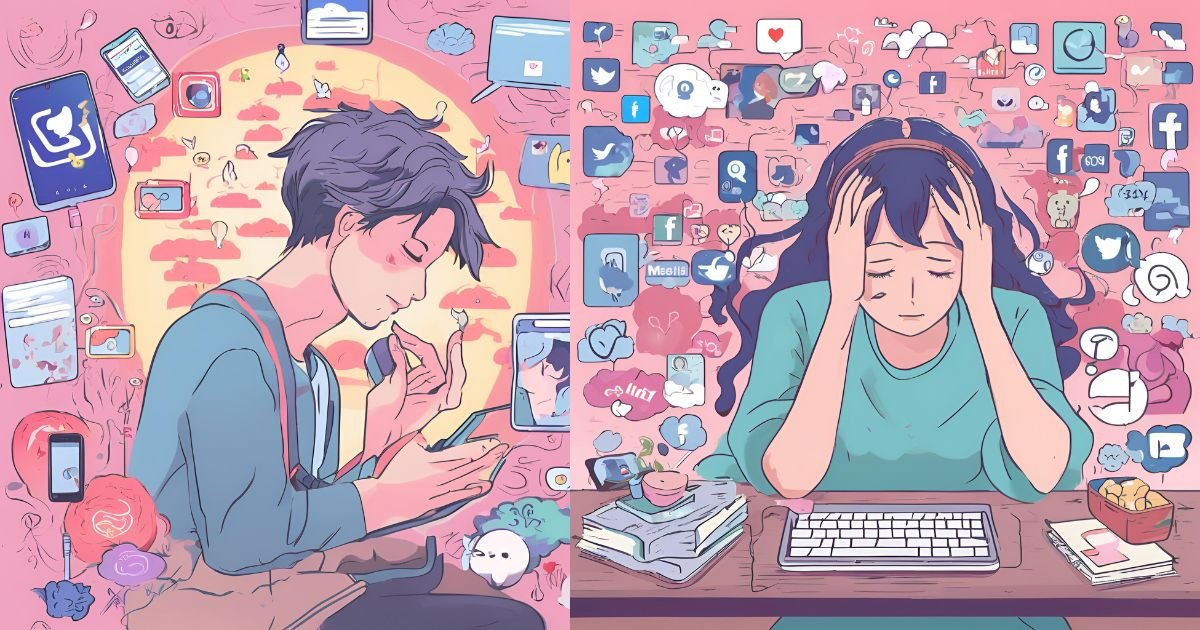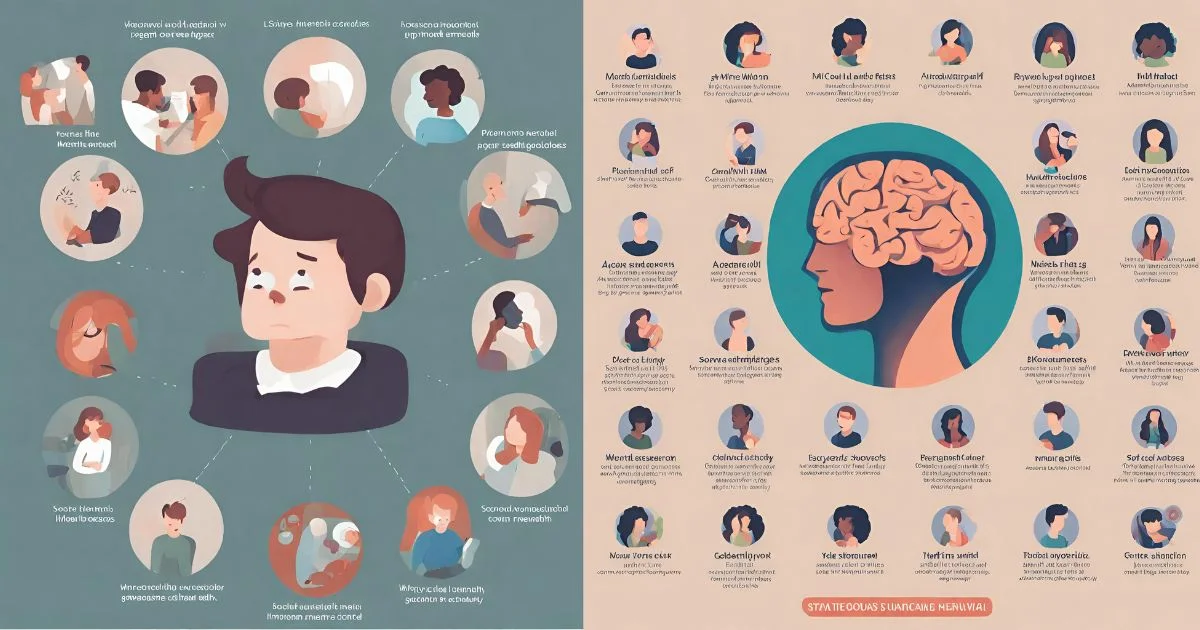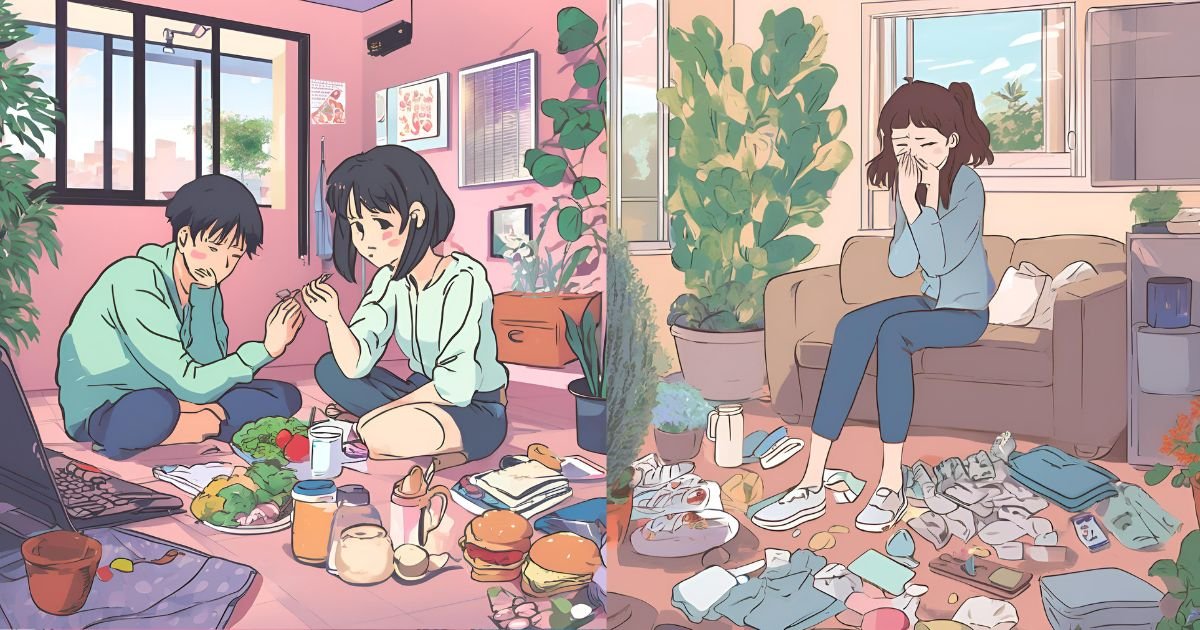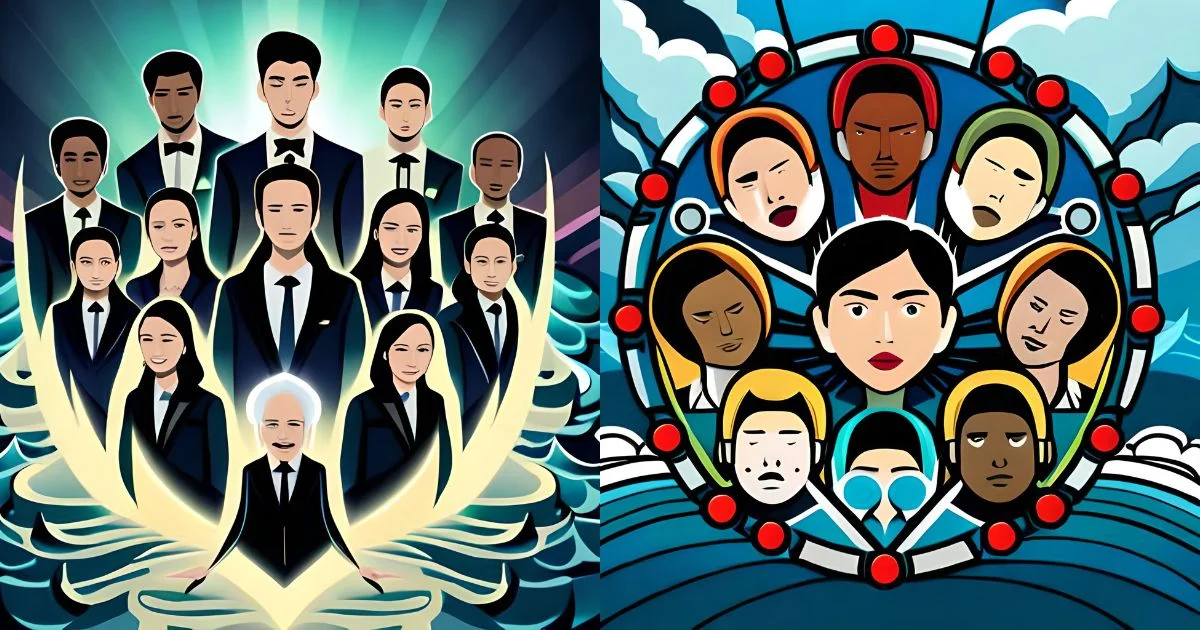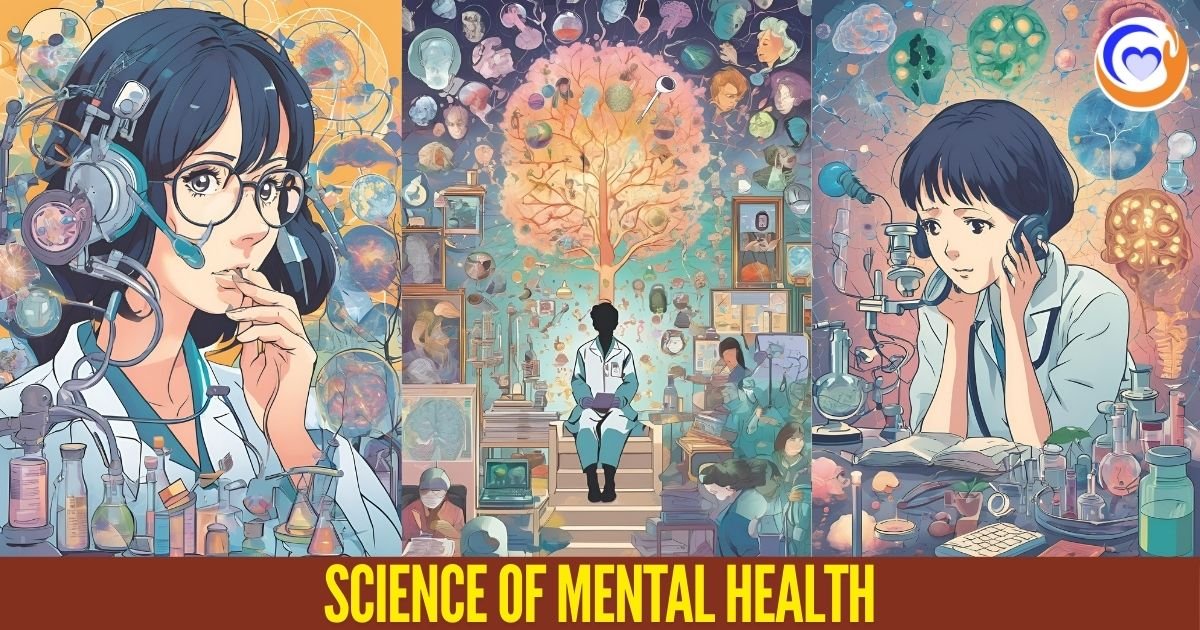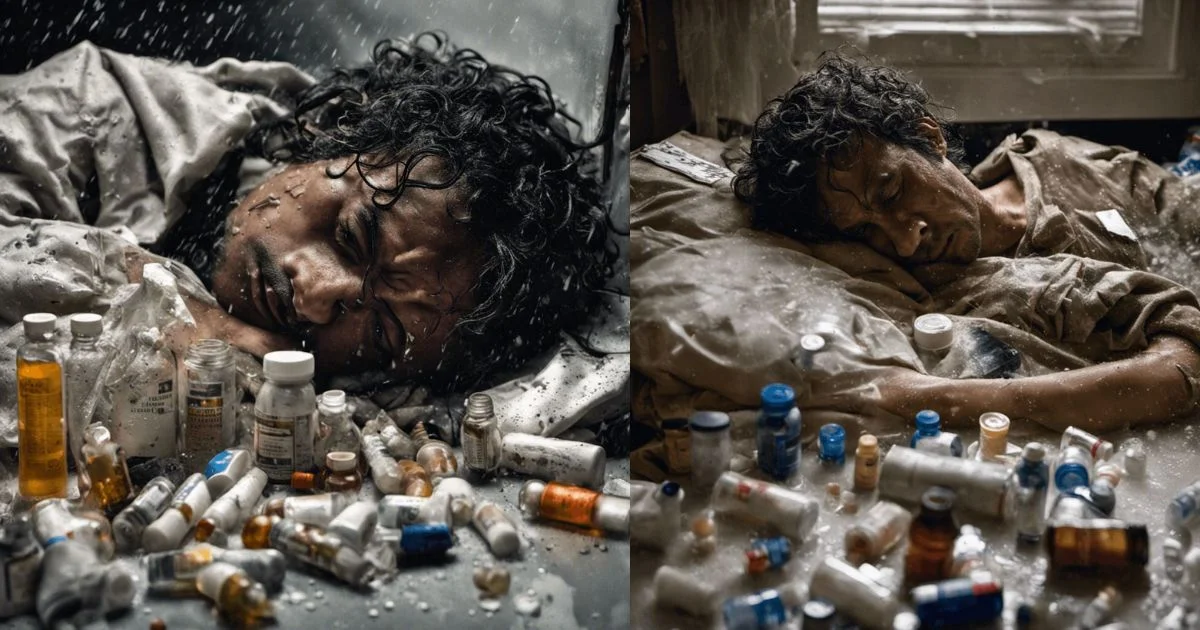Introduction
Social media has become an integral part of most people’s lives in the 21st century. Platforms like Facebook, Instagram, Twitter, and TikTok have billions of users across the world. While social media has enabled us to stay connected with friends and family and find communities, there is increasing evidence that excessive use can negatively impact mental health. This essay will examine how social media harms mental health, specifically about depression, anxiety, addiction, body image issues, sleep problems, and online harassment. In this article we cover the copic “Mental Health and effect of Social Media“.
Read More: Mental Health Awareness and Mental Health Warriors
Mental Health and effect of Social Media Use and Depression
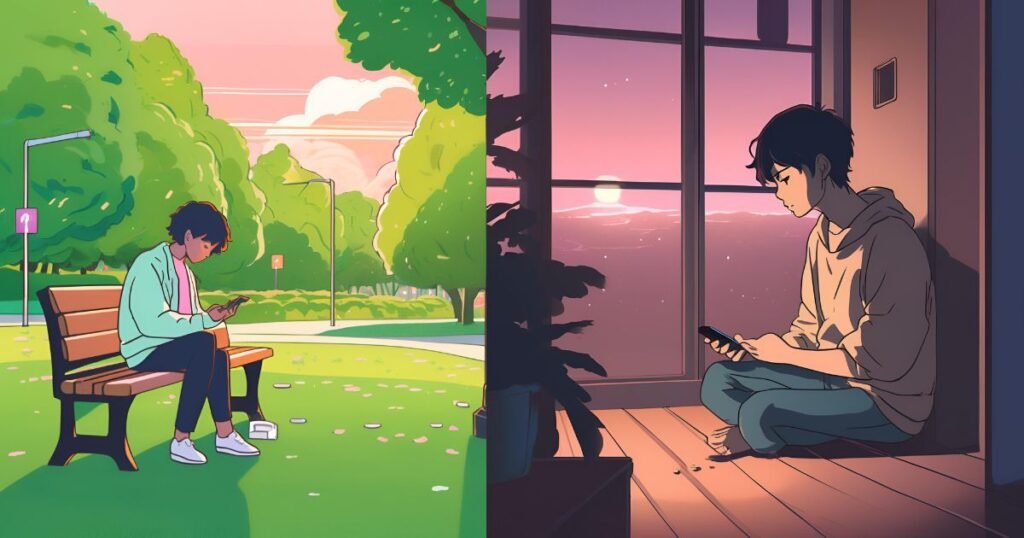
Several studies have found correlations between high social media use and symptoms of depression. One reason for this is social comparison. When we constantly see curated glimpses into other people’s lives, it’s easy to compare ourselves negatively against others which can lower self-esteem. Teens especially tend to compare themselves against peers and influencers. One study by the University Of Pittsburgh School Of Medicine found that teens who spend more than 5 hours a day on social media were 71% more likely to develop depression within six months compared to teens that spent only 1 hour per day.
Social media can also foster feelings of social isolation. While platforms like Facebook and Instagram give the impression of connecting us, research shows that spending time passively scrolling can make people feel left out and detached from real social connections. The dopamine hits we get from likes and comments provide momentary boosts but over time can undermine our capacity for meaningful engagement. Constant connectivity online can detract from in-person relationships.
Additionally, the curated versions of lives and experiences we see online promote unrealistic expectations and the belief that others are happier or living better lives. Exposure to idealized or filtered images can drive feelings of inadequacy and the sense that we don’t measure up, fueling depression.
Social Media and Anxiety
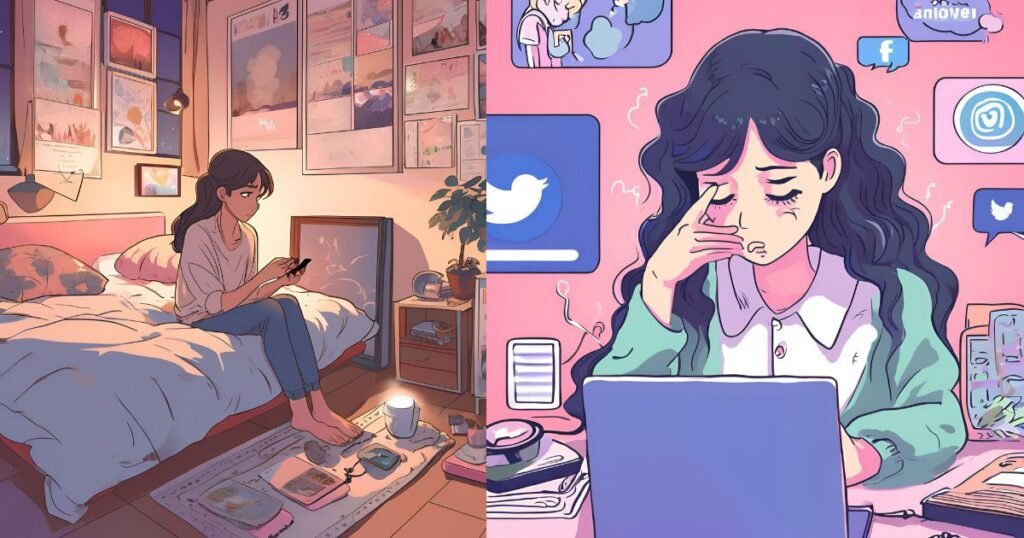
Social media has also been linked to rising rates of anxiety, especially among teens and young adults. FOMO (fear of missing out) is one way social media exacerbates anxiety. When we constantly see posts about events or activities we weren’t invited to or made aware of, it can provoke feelings of social anxiety. Platforms like Instagram and Snapchat encourage the perception that exciting things are happening just outside our reach which feeds anxious thought patterns.
The social comparison also plays a role in provoking anxiety on social media. Envying seemingly perfect bodies, social lives, and accomplishments seen in posts and stories can undermine our sense of worth and stir anxiety about measuring up. The pressure to garner likes, comments, followers, and engagement can also breed anxious thoughts and obsessive behaviors around curating an attractive online persona.
Additionally, the barrage of information and opinions on social media feeds can increase anxiety around world events, politics, health issues, and more. The hyper-connectedness of social media keeps many perpetually anxious about all that is happening in the world. For those already prone to anxiety disorders, constant access to triggering stories or graphic content can exacerbate symptoms.
Social Media Addiction
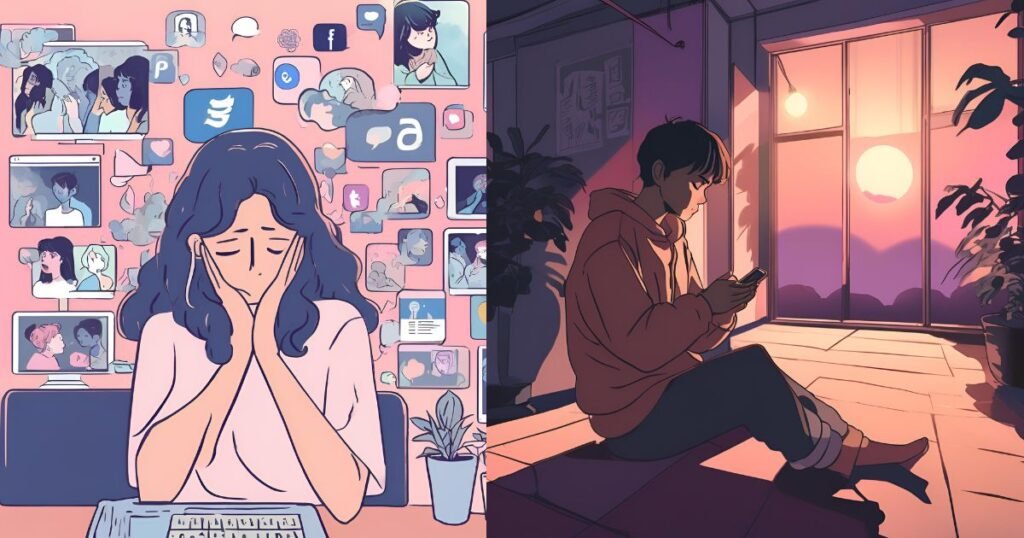
Social media platforms are intentionally designed to be addictive – the infinite scroll, notifications, auto play, and algorithms all serve to maximize engagement. This can lead to compulsive use of social media. Several studies have demonstrated that social media activates the same dopamine pathways in the brain as gambling and drug use. The variable rewards system employed by platforms – with likes, comments, retweets, etc. coming at unpredictable intervals – gets users hooked.
Signs of social media addiction include losing track of time while scrolling, constantly checking for notifications, neglecting work or relationships to spend more time online, experiencing anxiety when unable to access accounts, and unsuccessful attempts to cut back on use. Problematic social media use has been linked to attention difficulties, sleep disturbances, depression, and loneliness. Those who struggle with low self-esteem and social anxiety seem particularly prone to compulsively using social media to manage feelings of inadequacy.
Body Image & Social Media
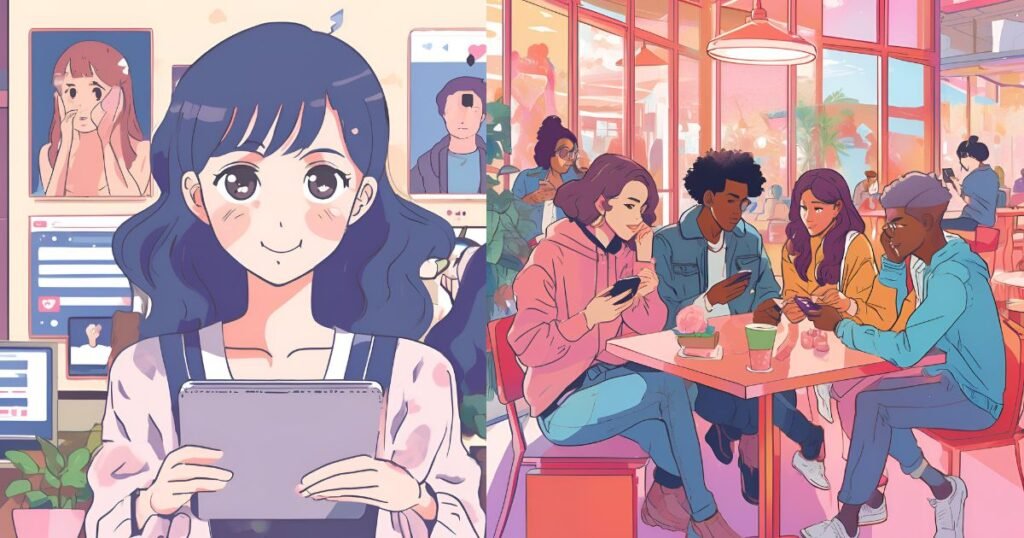
The proliferation of idealized, filtered, and Photo-shopped images on social media has been demonstrated to negatively impact body image, especially among young people. Social media creates unrealistic beauty standards that fuel appearance comparisons, body dissatisfaction, and disordered eating. Platforms like Instagram and TikTok are filled with heavily edited photos and videos promoting thin, toned bodies which research shows is linked to poor self-image and eating disorders.
Upward social comparisons against such imagery increase desires to change one’s appearance. Young women especially suffer from ‘thin ideal’ internalization after exposure to Instagram models and influencers. But men are also susceptible to muscle dysmorphia and appearance anxiety after seeing enhanced, idealized male bodies online. Hashtags and filters promoting thin or muscular body ideals further worsen social media’s effects on body image.
The platforms’ emphasis on appearance fosters the notion that our worth is determined by how we look. It also enables toxic appearance-related commentary. Studies show that body-shaming or appearance-focused remarks on social media provoke higher levels of body dissatisfaction and negative mood. The platforms make it difficult to escape unhealthy appearance pressures and comparisons.
Sleep Disturbances
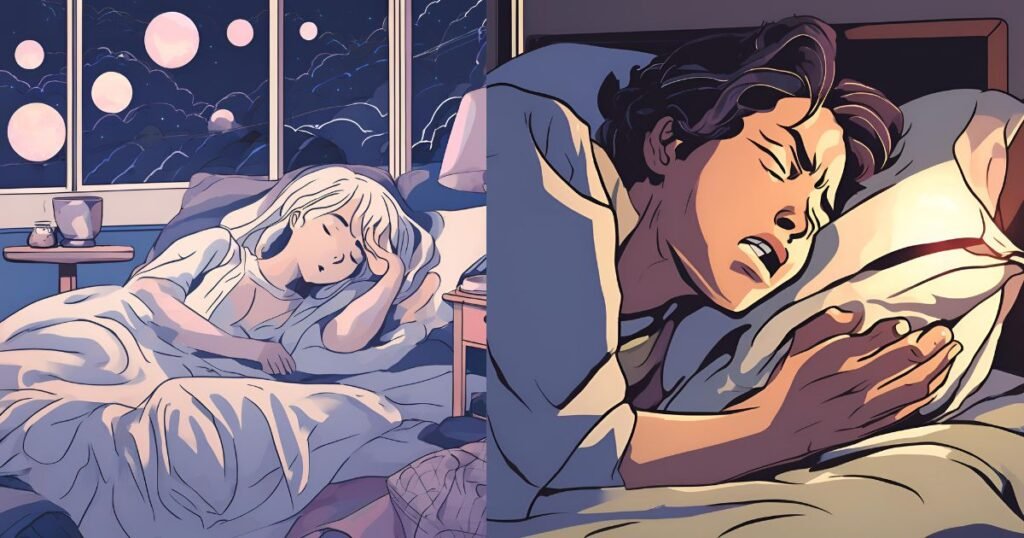
Many studies have linked social media usage, especially at night, with poor sleep quality and patterns. The blue light emitted from screens suppresses the sleep hormone melatonin, making it harder to fall and stay asleep. But social media also harms sleep by stimulating the mind, provoking anxiety-inducing comparisons, disrupting routines, exposing users to upsetting content at night, and creating fear of missing out.
Teens, which spend more time on social media throughout the day experience worse sleep at night. Night-time social media use is associated with irregular sleep patterns. Fear of missing out leads many users, especially youth, to bring mobile devices into bedrooms thereby interrupting sleep. And notifications from social apps create the temptation to reengage, depriving the mind of the chance to unwind before bed.
Poor sleep is linked to various mental health problems including depression, anxiety, poor concentration, and increased stress. So one way that excessive social media harms mental health is by negatively impacting the quality and regularity of sleep.
Online Harassment
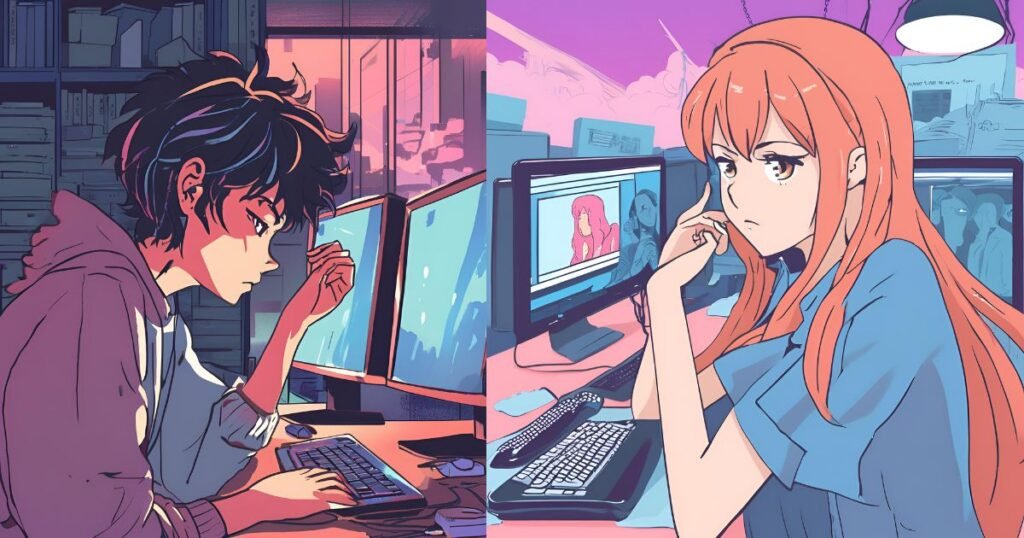
The anonymity and lack of accountability on many social media platforms have enabled online harassment, abuse, and bullying. This takes a significant toll on victims’ mental health. Adolescents are particularly susceptible as cyber bullying increases insecurity, devastates self-esteem, provokes anxiety and depression, and negatively impacts academic performance. LGBTQ youth, racial minorities, and those with disabilities are disproportionately targeted for online abuse.
For adults, social media can also expose users to harassment in the form of abusive comments, trolling, doing, and more. Women in the public eye especially seem to bear the brunt of demeaning, aggressive, and threatening comments on their posts – even from strangers. Victims describe feelings of terror, rage, shame, isolation, and sadness as a result of online abuse.
Some develop PTSD-like symptoms and struggle to rebuild self-worth after public humiliation or sexual harassment online. Many users self-censor out of fear of provoking attacks or have left social media entirely due to harassment. Social media enables new avenues for abusive behaviors that can cause lasting psychological harm.
Conclusion
While social media provides some benefits in terms of connectivity and community, there is substantial evidence highlighting its potential harm to mental health. Depression, anxiety, poor sleep, body image issues, online harassment, and social media addiction are unfortunately commonplace side effects of excessive and uncontrolled social media use, especially among youth.
Moving forward, it will be important for both individuals and platforms to promote more mindful engagement with social media. Users should reflect on the reasons they use it and try to limit obsessive checking habits. More research is needed to influence platforms to make ethically-driven changes that foster authentic human connection online while minimizing risks to mental health and well-being. With awareness and continued effort, social media need not be so detrimental to our mental health.
Summary
Social media’s influence on mental health has grown significantly as it often impacts us in subtle but profound ways. Many people find themselves feeling low, depressed, or anxious after extended periods on platforms like Facebook or Instagram, where social comparison is almost unavoidable. Scrolling through others’ curated images and accomplishments can create unrealistic expectations about our own lives, leading to self-doubt and body image issues.
This constant drive for likes, comments, and follows fosters a form of addiction that pulls us back to our screens, even late at night, contributing to sleep disturbances. What’s more, the anonymity on these platforms has enabled online harassment, impacting self-esteem and emotional well-being, especially among young users. As we strive to stay connected, we must remain aware of the potential toll on our mental health and the need for a mindful, balanced approach to social media.
FAQs
Q: How does social media contribute to depression?
A: Social media promotes constant social comparison, making users feel inadequate or left out, which can lower self-esteem and lead to depression.
Q: What is the link between social media and anxiety?
A: Social media fuels anxiety through FOMO (fear of missing out), social comparison, and pressure to gain likes and followers, leading to anxious thought patterns.
Q: Why is social media considered addictive?
A: Platforms are designed with features like infinite scroll and notifications, which trigger dopamine release, making social media use compulsive and hard to control.
Q: How does social media impact body image?
A: Social media often portrays unrealistic beauty standards, leading to body dissatisfaction and disordered eating, especially among young users.
Q: Can social media disrupt sleep?
A: Yes, social media usage, especially at night, can reduce sleep quality by suppressing melatonin and increasing mental stimulation, making it difficult to rest.
Q: What are the effects of online harassment on mental health?
A: Online harassment, common on social media, can lead to depression, anxiety, and low self-esteem, severely affecting users’ mental health.
Q: How does FOMO (Fear of Missing Out) relate to social media?
A: Social media highlights events and activities, making users feel excluded if they aren’t part of it, which can create feelings of anxiety and inadequacy.
Q: What age group is most vulnerable to social media’s negative effects?
A: Teenagers and young adults are especially vulnerable due to social comparison, peer pressure, and a tendency for excessive social media use.
Q: Does social media contribute to social isolation?
A: Yes, passive scrolling can foster a sense of disconnection and loneliness, as virtual interactions replace meaningful real-life connections.
Q: How can individuals minimize the negative effects of social media on mental health?
A: Limiting usage, avoiding comparison, setting boundaries, and being mindful of content can help reduce social media’s negative impact on mental health.

